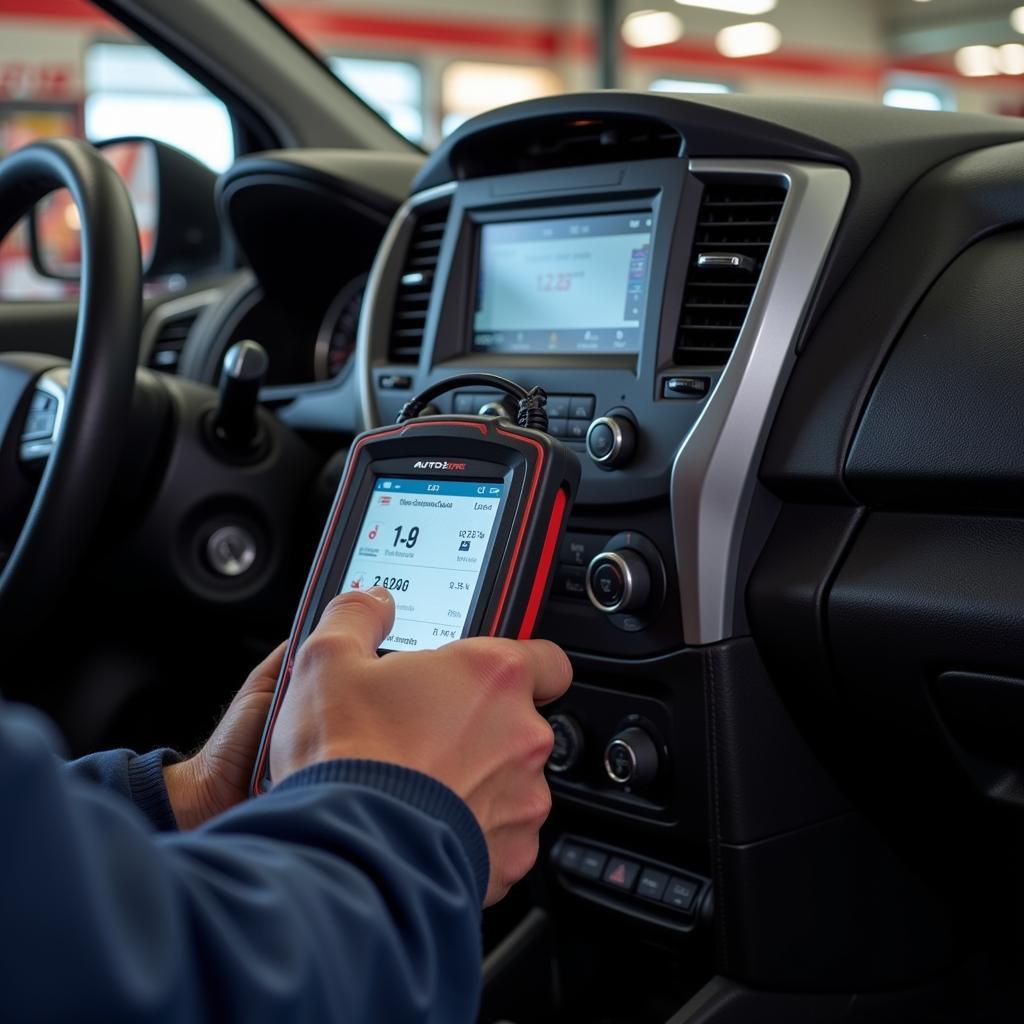When Can We Expect Cars as a Service?
The automotive landscape is changing rapidly. “When Can We Expect Cars As A Service?” is a question on many minds, reflecting a growing interest in alternative ownership models. From subscription services to on-demand rentals, the traditional concept of car ownership is being challenged by a more flexible, service-oriented approach. This shift promises to revolutionize how we access and utilize personal transportation.
The transition to Cars as a Service (CaaS) isn’t a sudden leap, but a gradual evolution. Several factors influence the timeline, including technological advancements, infrastructure development, consumer adoption, and regulatory frameworks. While fully autonomous robo-taxis might still be some years away, various forms of CaaS are already available, indicating a clear trajectory towards a service-dominated future.
Understanding Cars as a Service (CaaS)
CaaS encompasses various models that provide access to vehicles without the burdens of traditional ownership. This can range from short-term rentals and ride-hailing services to long-term subscriptions that bundle maintenance, insurance, and upgrades. Essentially, CaaS shifts the focus from owning a depreciating asset to accessing mobility as a service.
Do you tip car service guys? This is a common question in the traditional car service world, but with CaaS, such considerations might become irrelevant as tipping practices evolve alongside the service model.
The appeal of CaaS lies in its flexibility and convenience. Users can choose the vehicle that best suits their needs at any given time, whether it’s a compact car for city commuting or an SUV for a family road trip. This eliminates the need for long-term commitments, down payments, and the hassle of maintenance and repairs.
Factors Influencing the CaaS Timeline
Several key factors are driving the adoption of CaaS and shaping its future:
-
Technological Advancements: Autonomous driving technology is a significant catalyst for CaaS. As self-driving cars become more reliable and widespread, they will pave the way for efficient and cost-effective robo-taxi services. Furthermore, advancements in connectivity and data analytics are enabling personalized and optimized mobility solutions.
-
Infrastructure Development: The widespread adoption of CaaS requires robust charging infrastructure for electric vehicles, as well as efficient traffic management systems and smart city initiatives. Governments and private companies are investing heavily in these areas, creating a supportive environment for CaaS to flourish.
-
Consumer Adoption: Consumer preferences are shifting towards on-demand services and subscription models. The younger generation, in particular, is less attached to car ownership and more open to flexible mobility solutions. This growing demand is fueling the expansion of CaaS offerings.
 CaaS Infrastructure Development – Charging Stations and Smart City Integration
CaaS Infrastructure Development – Charging Stations and Smart City Integration
- Regulatory Frameworks: Governments play a vital role in shaping the regulatory landscape for CaaS. Clear regulations regarding autonomous vehicles, data privacy, insurance, and licensing are essential for fostering innovation and ensuring consumer safety.
A new car service contract might look very different in the CaaS world. Instead of focusing on ownership and warranties, future contracts might emphasize service level agreements, usage limits, and subscription terms. This requires adapting current legal frameworks to accommodate the evolving nature of mobility.
The Future of Cars as a Service
The future of CaaS is bright, with predictions of significant growth in the coming years. As technology matures and consumer adoption increases, we can expect to see:
-
Increased Accessibility: CaaS will make personal transportation more accessible to a wider range of people, including those who cannot afford to own a car or those who prefer not to deal with the associated hassles.
-
Reduced Congestion: Efficiently managed CaaS fleets can optimize traffic flow and reduce congestion in urban areas. Shared autonomous vehicles can significantly decrease the number of cars on the road, leading to smoother commutes and improved air quality.
-
Enhanced Safety: Autonomous vehicles have the potential to significantly improve road safety by eliminating human error, a major cause of accidents. CaaS providers can also implement strict maintenance schedules and safety protocols, further enhancing passenger safety.
“Where can I get my car serviced in Eastbourne?” This question highlights the current need for localized car maintenance services. However, with the rise of CaaS, maintenance and repairs will likely be integrated into the service package, simplifying the process for users.
Conclusion
When can we expect cars as a service to become the norm? While a precise timeline is difficult to predict, the transition is already underway. As technology continues to advance, infrastructure improves, and consumer preferences evolve, CaaS will become increasingly prevalent. Embracing this shift requires a collaborative effort between automakers, technology companies, governments, and consumers. The future of mobility is service-oriented, and CaaS is poised to revolutionize how we access and experience personal transportation. Are you ready for the ride?
Is oilfield services equipment a good career path? While the oil and gas industry remains important, the rise of electric and autonomous vehicles in the CaaS model suggests a shift towards new skill sets and career opportunities in areas like software development, data analytics, and mobility services. A complete care support service related to vehicles will also transition towards encompassing the broader ecosystem of CaaS, including subscription management, software updates, and remote diagnostics.
FAQ
- What is Cars as a Service (CaaS)?
- What are the benefits of CaaS?
- How does CaaS differ from traditional car ownership?
- When will CaaS become mainstream?
- What are the challenges facing CaaS adoption?
- How will CaaS impact the automotive industry?
- What are the different types of CaaS models available?
Need support? Contact us via WhatsApp: +1(641)206-8880, Email: [email protected] or visit our office at 456 Oak Avenue, Miami, FL 33101, USA. Our customer service team is available 24/7.

